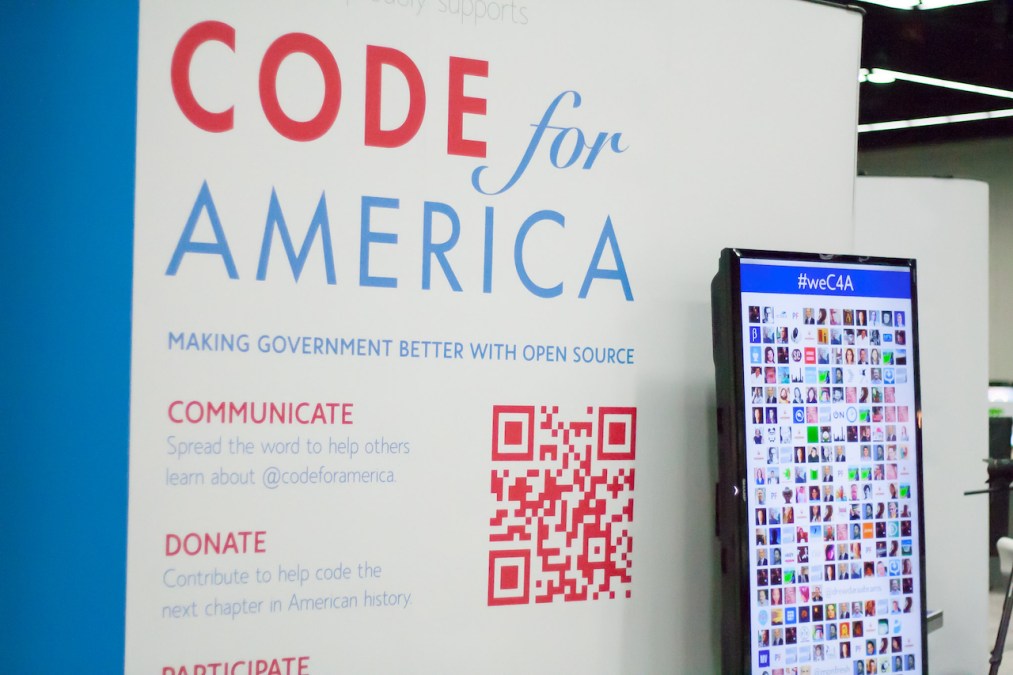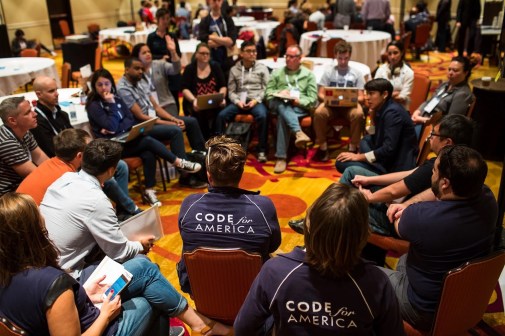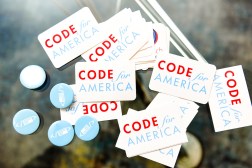Coronavirus kicks Code for America brigades into action across cities

Local government agencies that struggled to move government services online over the past several months have found a fast-moving ally in Code for America’s local chapters, leaders of which say they are treating the coronavirus pandemic like any other natural disaster that requires digitizing services to provide immediate access to food and shelter.
Veronica Young, senior manager of Code for America’s Brigade program, said on a webinar last week that the parent organization — which supports more than 80 local groups across the country — is “kicking into action” by communicating with brigade leaders via COVID-19-dedicated Slack channels and weekly meetings, and by convening working groups to share tools and ideas. The constant communication has helped brigades in Tulsa, Oklahoma; San Jose, California; and South Florida assist agencies and nonprofits that lacked the resources to handle the coronavirus pandemic by themselves.
“We were able to create, very quickly, structures, to combat some of the needs coming about in our communities, particularly in the social safety net,” Young said.
San Jose has counted nearly 2,800 coronavirus cases since the pandemic started. In late April, the city’s innovation and technology office called on the local Code for America brigade to help design a chatbot and free food and grocery map for the city’s residents that were struggling to get resources as a result of the coronavirus pandemic.
The chatbot, part of San Jose’s Siliconvalleystrong.org resource hub, catalogued frequently-asked questions and answers in three different languages for residents to reference if they didn’t understand how to get medical or financial help from the site. The open-source nature of the GitHub-hosted site allows San Jose officials and brigade members to transparently update the site with new information and features. San Jose officials can also leave notes in GitHub if they find issues that they need help fixing, said Yan-Yin Choy, a co-captain of Code for San Jose.
The open-source nature of the Github-hosted site allows San Jose officials and brigade members to constantly update it with new information and features, Choy said.
Code for Tulsa was able to help the Oklahoma Department of Human Services, which was overrun with calls and questions residents seeking supplemental nutrition benefits as unemployment rose in the early weeks of the health crisis. Families found that applying for food assistance from the state agency was time-consuming and tedious, according to Carlos Moreno, the Tulsa brigade captain, so the group built a mobile app that allowed residents to apply for the benefits quickly and connect eligible residents with agents who could help them figure out their next steps once they were accepted into the program. Because more than half of the families that were eligible for benefits used cellphones to apply for them in the first place, Moreno said, it made sense for the agency to go mobile-first.
“We wanted to build a tool that’s easy for families but would reduce administrative burden on Oklahoma Department of Human Services so they could process more cases,” Moreno said.
Moreno said Code for America plans to use its brigade network to roll the mobile app out to every state in the country, using a database curated by the federal digital services agency 18F that lists the food stamp eligibility rules.
The South Florida brigade, which covers Miami, Palm Beach and Broward counties, developed a tool last month that allows residents to search local eviction rules to see if they are at risk of losing their housing. Understanding that coronavirus-related layoffs could spur a wave of evictions, Code for South Florida founder and executive director Gregory Johnson led a team that created the Florida Eviction Protection project to give residents resources to fight evictions. The mission wasn’t designed with any Florida agencies in mind, but rather nonprofits that saw coronavirus-related economic issues leading to similar problems that hurricanes and other natural disasters cause. The tool, which includes an interactive map and list of active eviction cases, received 5,000 visitors in its first month.
“We need to make sure we’re getting this in front of real people that can give feedback to it,” Johnson said.





